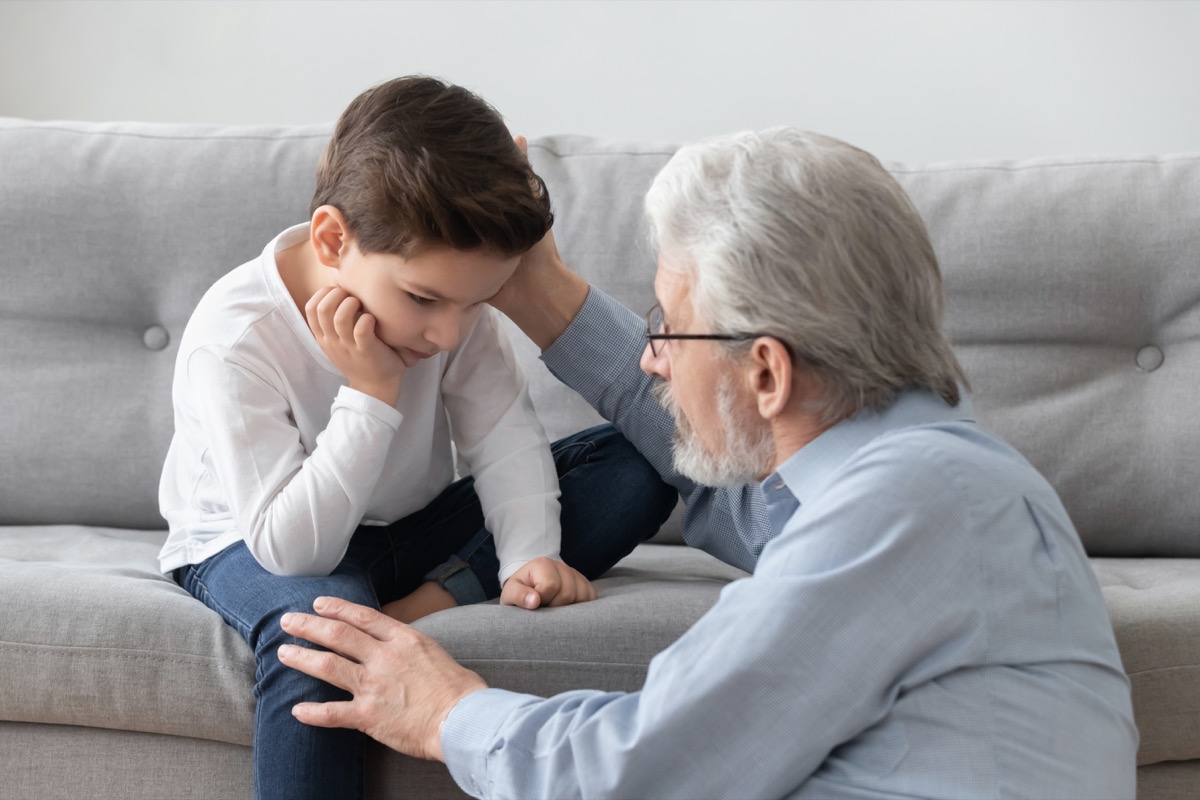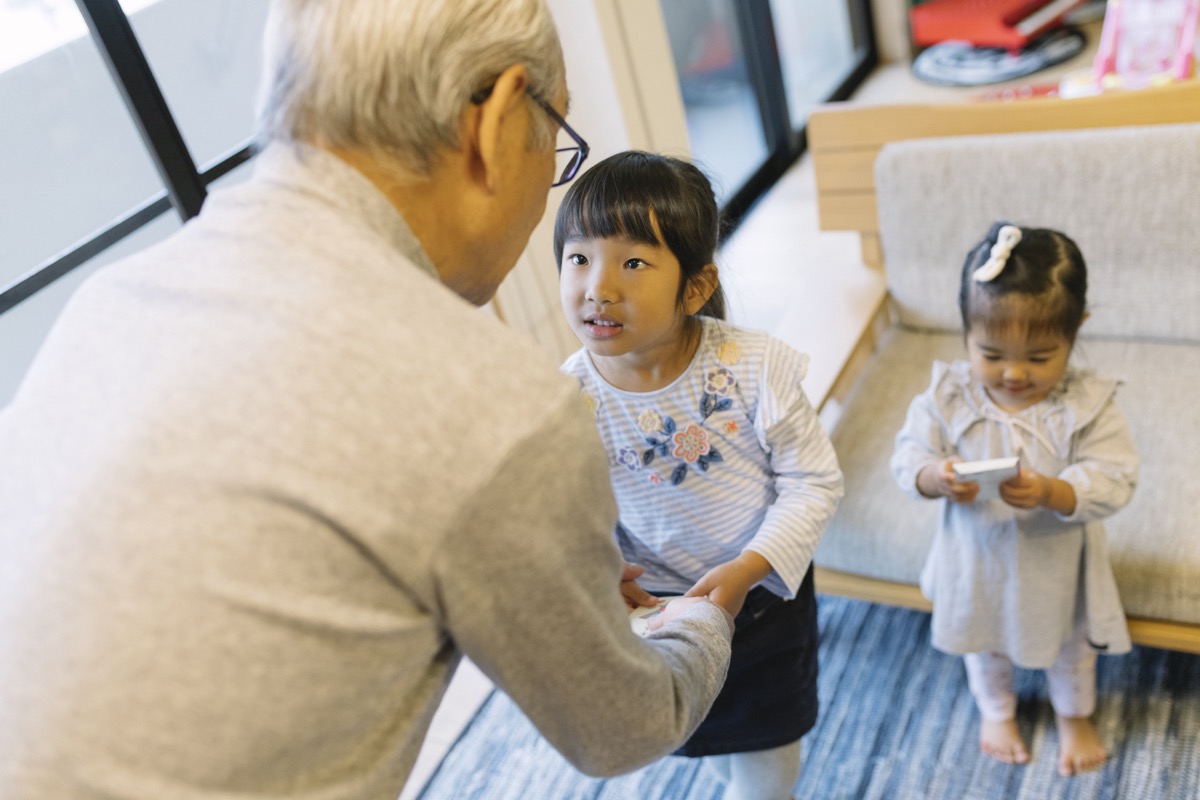Comparing your grandchild to their siblings or cousins isn’t always intentional, but it can still sound that way. Consider this example posed by Felicia Broccolo, certified life coach of The Life Coach School: “[When you say], ‘Susie is smart and Emily is pretty,’ you think you’ve given a compliment. But all Susie heard is that she’s not pretty and all Emily heard is that she’s not smart.” Similar harm can come from comparing children to their own parents, even when you mean it as a compliment. “We might say, ‘You are even better at this than your dad,’ or ‘Your mother wasn’t much of a cook, but you are,’” explains psychotherapist and relationship counselor Dan Auerbach. “These are examples where a grandparent has placed unprocessed feelings about their relationship with their child, who is now a parent, onto their grandchild. That can be very confusing to a grandchild who is trying to establish their own identity and is being brought into some unprocessed feelings between grandparent and parent.” Want more guidance on how to avoid saying something you’ll regret to your grandkids? Read on! And for more grandparenting advice, here are the Secrets No One Tells You About Becoming a Grandparent. If you think you’d be a better parent to your grandchild than the ones they’ve got, keep that to yourself. And not just because it could be hurtful to the parent, but it could affect your grandchild as well. “Grandparents can at times think they know more or better than their children when it comes to parenting,” says Danielle Friedman, licensed mental health counselor with Free Space Counseling. “While they might believe this to be true, communicating their dissatisfaction with parenting in front of or to their grandchild might send the message that who they are isn’t good enough. They are not only criticizing their child’s parenting techniques, they are also criticizing the outcome of those techniques… also known as the grandchild.” And for more words to keep to yourself, check out This Is the One Word You Should Never Say When Apologizing.ae0fcc31ae342fd3a1346ebb1f342fcb Grandparents’ comments about their grandchildren’s food habits or body type can stick with them for life. “I have had more than a few clients talk about how critical comments from a grandma became a catalyst for chronic dieting and body shame,” explains therapist Erin Grumley. “It can be assumed that those grandparents had the best of intentions, but critical comments about the body at a young age can have long-term effects.” According to Grumley, “this is made even worse when there are financial rewards for losing weight or shaming around food choices, like, ‘Do you really want to eat that, honey?’” Setting up a structure of secrecy teaches the wrong lessons about honesty and open communication with trusted loved ones. “A better alternative: ‘Let’s ask or talk to mommy and daddy before we do,” says Jessica Sweeney, mental health counselor and the founder of Sunglow Counseling. And yes, that goes for examples as seemingly harmless as eating candy in the afternoon, because it sends the same message about obfuscating the truth. And for more errors grandparents make, check out The One Word Older People Should Never Say. Or other variations of the same message, like, “There’s no reason to feel like that,” or “You’re being dramatic.” Feelings are real, and grandparents should underscore that kids are safe to express themselves—and are encouraged to do so. Instead, try, “It’s OK to have feelings, I’m here,” Sweeney suggests. Or something like: “Emotions can be very big, I’m here for you.” And for more guidance on what to say and what not to say, sign up for our daily newsletter.



